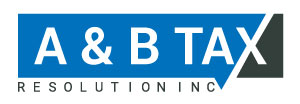Trust Tax Preparation
ESTATE & TRUST TAX PREPARATION
Large estates are required to file a tax return that lists all the assets of the estate. These assets include bank accounts, stocks, real estate, IRAs, pensions, annuities and the like. This is called Form 706 – Estate Tax Return. Some estates may also need to file a tax return that reports the income earned from the date of death to the date assets are distributed to the heirs. This is called Form 1041 – Income Tax Returns for Estates and Trusts. In some cases, the trust pays any tax that is due. In other cases, the beneficiaries will pay the tax.
The estate must also prepare a final individual income tax return. This return reports the income earned from January 1st until the date of death. It can be challenging to know exactly how to handle certain types of income on the final 1040 and 1041.

We will evaluate your unique situation to determine which filings are needed and accurately prepare the returns.
Professional teamwork is important. Executors, beneficiaries, attorneys and investment advisors look to us for fiduciary income tax and estate tax planning and preparation, and we work in collaboration with them. Trusts and estates often involve complex tax issues, and there simply is not a substitute for experience. Our experience will help guide you through the difficult task of calculating and reporting trust income to beneficiaries.
PARTNERING WITH ATTORNEYS
We are collaborative and enjoy partnering with attorneys to help your clients file estate tax returns with confidence. We’re experienced in estate tax law, but don’t have to cover the overhead costs for a national or regional firm. Instead, we offer flexibility and personal attention you often cannot find elsewhere. If you’re a new or established attorney looking for a CPA partnership, please contact us to learn more about how we can help.
